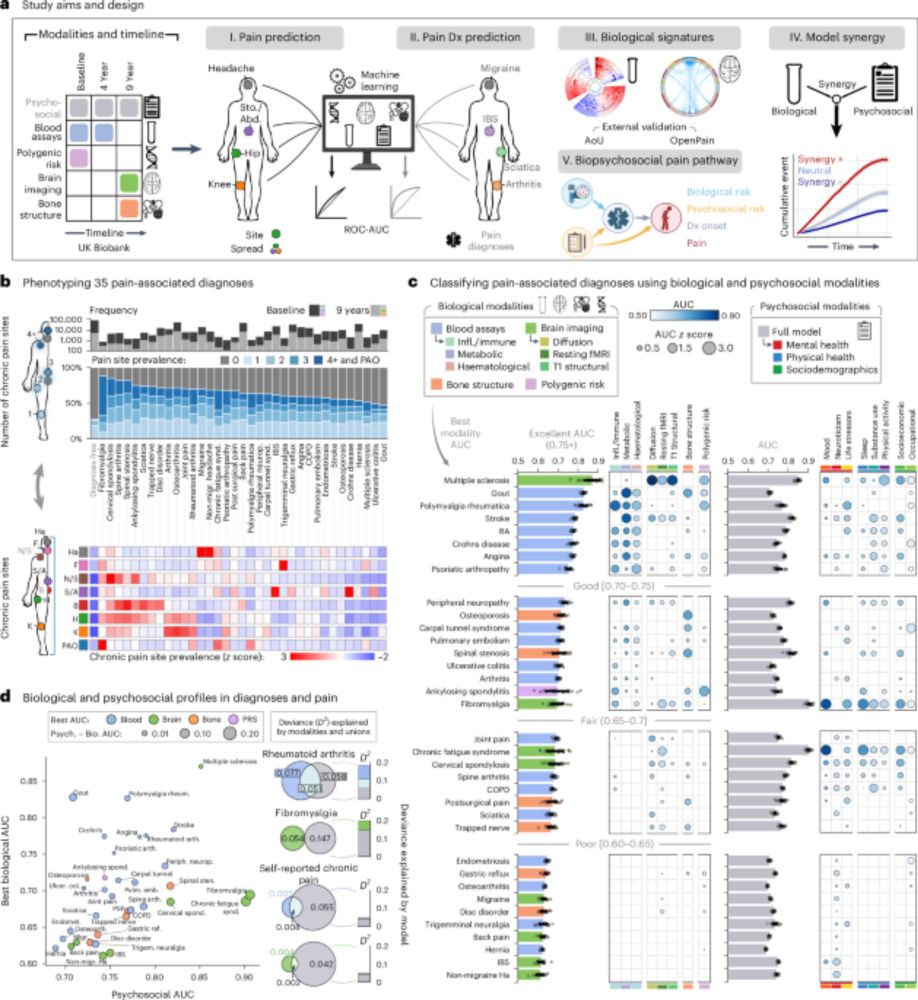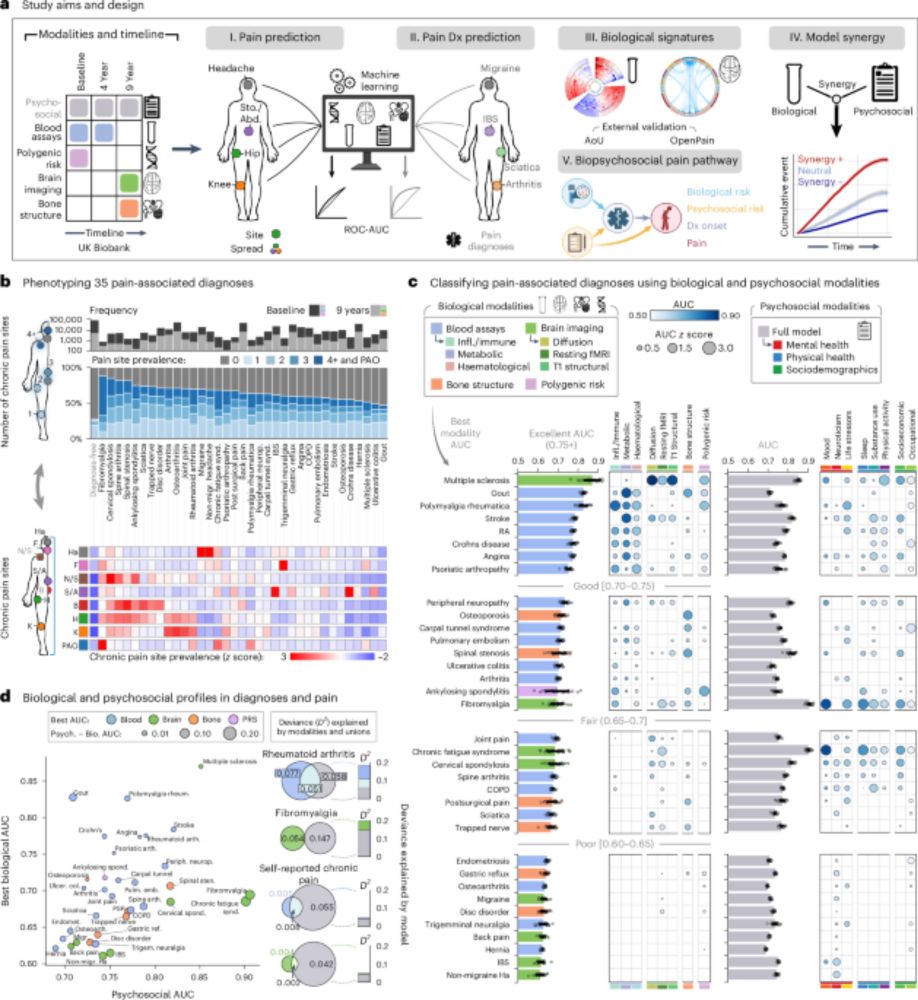
nature.com/articles/s41...
We show that combining biological 🧬 and psychosocial 📋 data offers a much stronger, more reliable path to predicting pain and diagnosis. 🧵
www.nature.com/articles/s41...
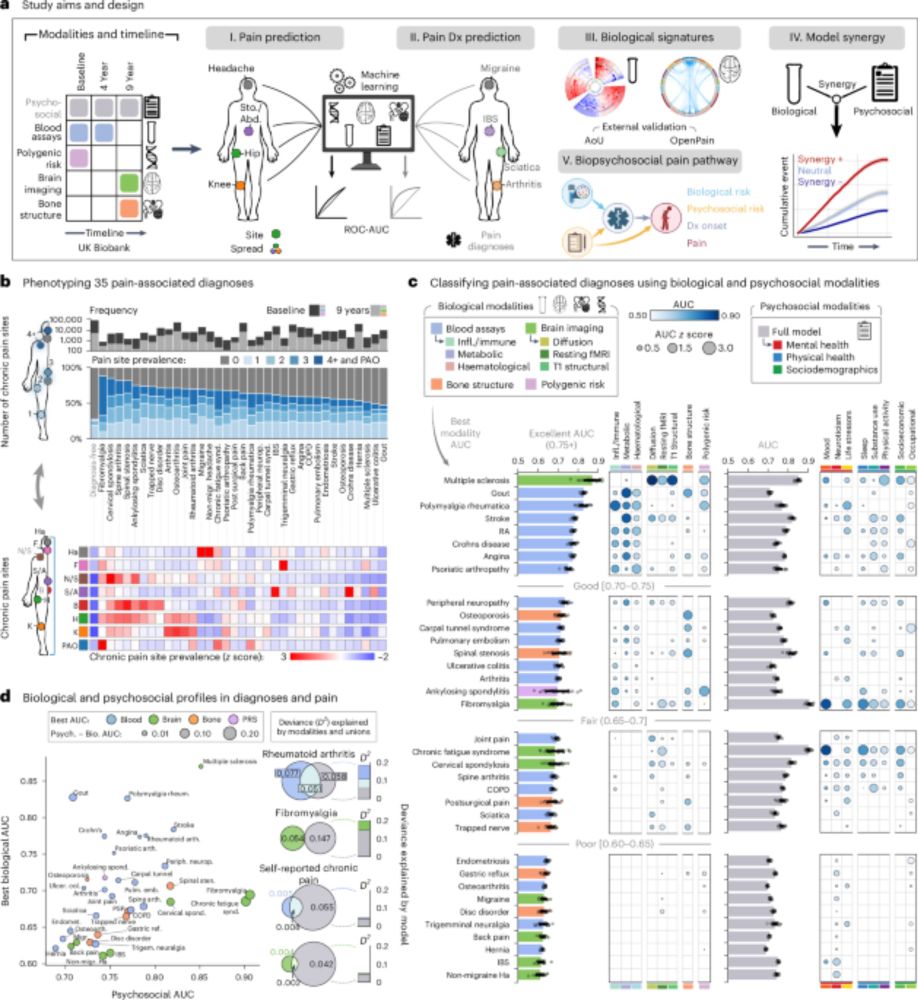
www.nature.com/articles/s41...
👉 Injury/disease doesn't reliably predict pain
👉 Biomarkers alone can't explain pain
👉 PSYCHOSOCIAL factors reliably determine chronic pain
👉 Painful conditions can be predicted from the SYNERGY btwn bio + psychosocial factors
www.nature.com/articles/s41...

👉 Injury/disease doesn't reliably predict pain
👉 Biomarkers alone can't explain pain
👉 PSYCHOSOCIAL factors reliably determine chronic pain
👉 Painful conditions can be predicted from the SYNERGY btwn bio + psychosocial factors
www.nature.com/articles/s41...
Read the full paper here: nature.com/articles/s41...
Grateful to Nature Human Behaviour for publishing this work.
#ChronicPain #PrecisionMedicine #Biomarkers #Psychosocial #MachineLearning

Read the full paper here: nature.com/articles/s41...
Grateful to Nature Human Behaviour for publishing this work.
#ChronicPain #PrecisionMedicine #Biomarkers #Psychosocial #MachineLearning
🧬 + 📋 = 🔍
This synergy paints a richer picture of pain vulnerability and brings us closer to personalized pain care.
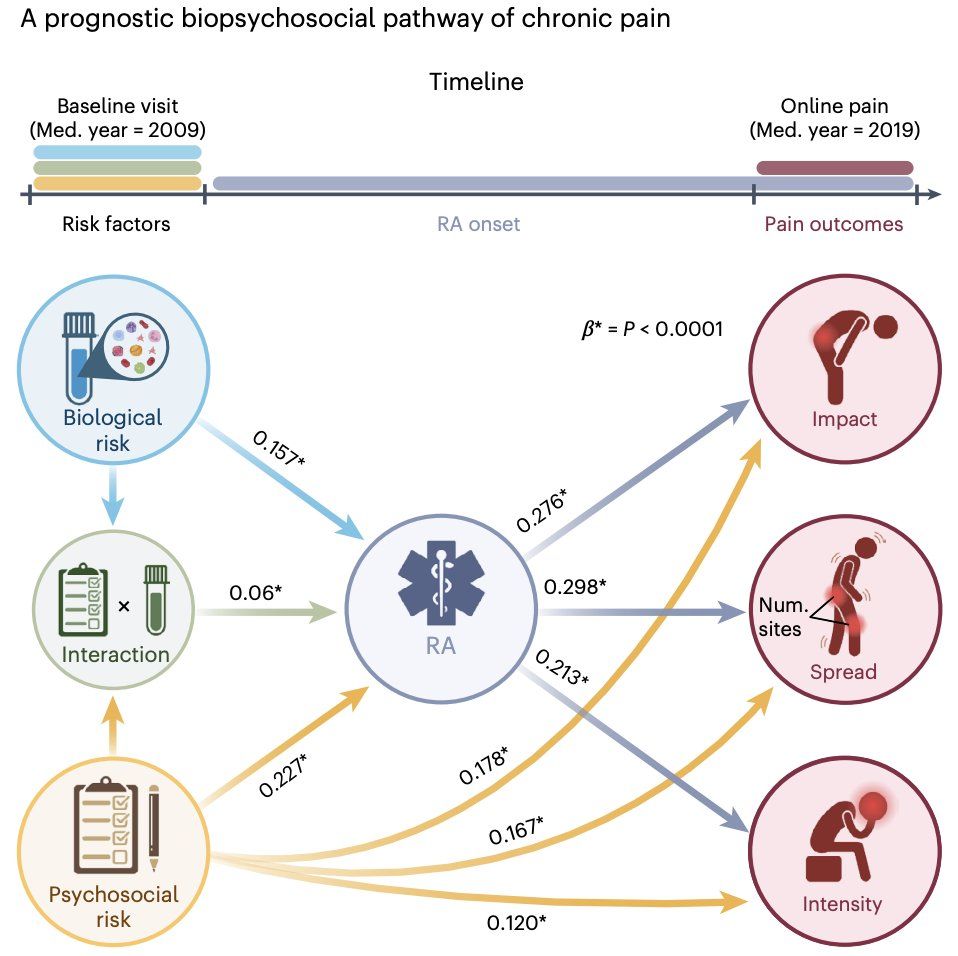
🧬 + 📋 = 🔍
This synergy paints a richer picture of pain vulnerability and brings us closer to personalized pain care.
Those high on both risks had over 2× higher incidence of painful conditions over 15 years, while those high on just one showed little to no added risk.
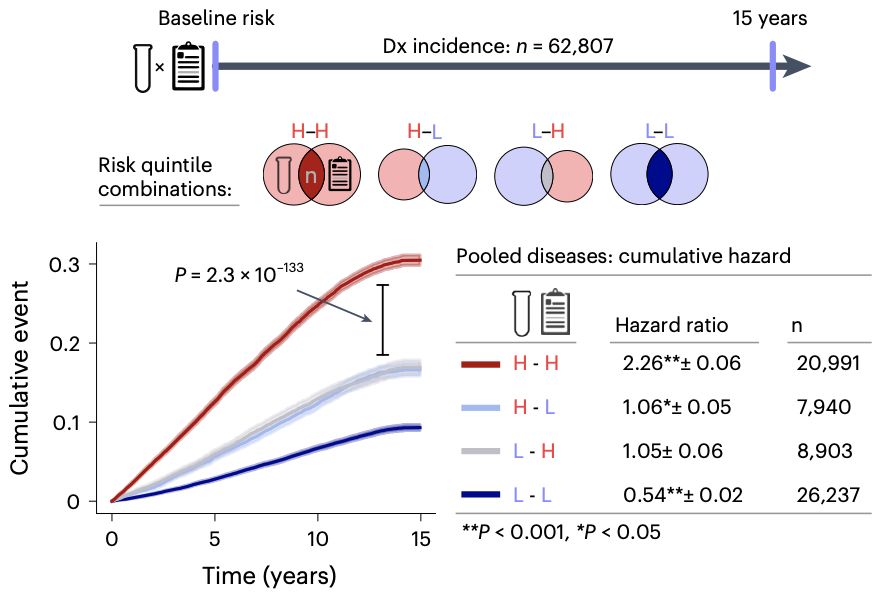
Those high on both risks had over 2× higher incidence of painful conditions over 15 years, while those high on just one showed little to no added risk.
But for self-reported pain, biology wasn’t enough, psychosocial models performed significantly better.
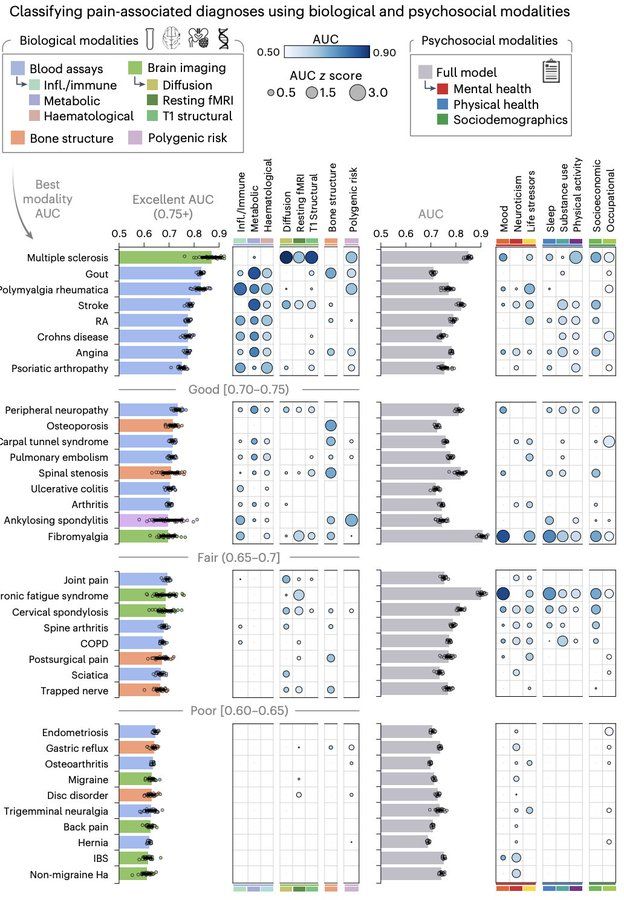

But for self-reported pain, biology wasn’t enough, psychosocial models performed significantly better.
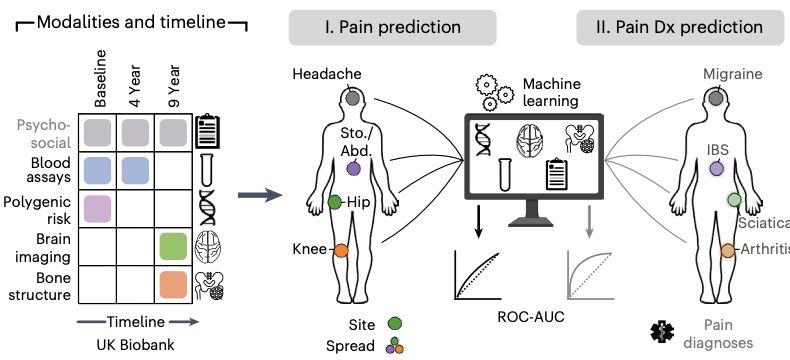
Spoiler: Yes, significantly.
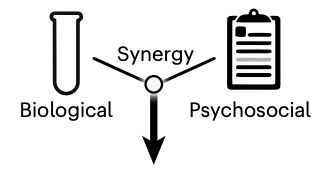
Spoiler: Yes, significantly.
nature.com/articles/s41...
We show that combining biological 🧬 and psychosocial 📋 data offers a much stronger, more reliable path to predicting pain and diagnosis. 🧵

nature.com/articles/s41...
We show that combining biological 🧬 and psychosocial 📋 data offers a much stronger, more reliable path to predicting pain and diagnosis. 🧵
